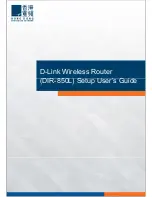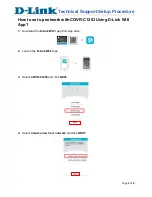
69
68
69
68
Using the Web-Based Advanced User Interface
Changing the Wireless Security Settings
Your Router is equipped with WPA (Wireless Protected Access), the
latest wireless security standard. It also supports the legacy security
standard, WEP (Wired Equivalent Privacy). By default, wireless
security is disabled. To enable security, you must first determine
which standard you want to use. To access the security settings, click
“Security” on the Wireless tab.
WPA Setup
Note:
To use WPA security, all your clients must be upgraded to
drivers and software that support it. At the time of this manual’s
publication, a security patch download is available, for free, from
Microsoft. This patch works only with the Windows XP operating
system. You also need to download the latest driver for your Belkin
Wireless G Desktop or Notebook Network Card from the Belkin
support site. Other operating systems are not supported at this time.
Microsoft’s patch only supports devices with WPA-enabled drivers
such as Belkin 802.11g products.
There are two types of WPA security: WPA-PSK (no server) and WPA
(with radius server). WPA-PSK (no server) uses a so-called Pre-
Shared key as the security key. A Pre-Shared key is a password that
is between 8 and 63 characters long. It can be a combination of
letters, numbers, and other characters. Each client uses the same key
to access the network. Typically, this mode will be used in a home
environment.
WPA (with radius server) is a configuration wherein a radius server
distributes the keys to the clients automatically. This is typically used
in a business environment.
Setting WPA-PSK (no server)
1.
From the “Security Mode” drop-down menu, select “WPA-PSK
(no server)”.
2.
For Encryption Technique, select “TKIP” or “AES”. This setting
will have to be identical on the clients that you set up.
3.
Enter your pre-shared key. This can be from 8 to 63 characters
and can be letters, numbers, or symbols. This same key must be
used on all of the clients that you set up. For example, your PSK
might be something like: “Smith family network key”.
















































